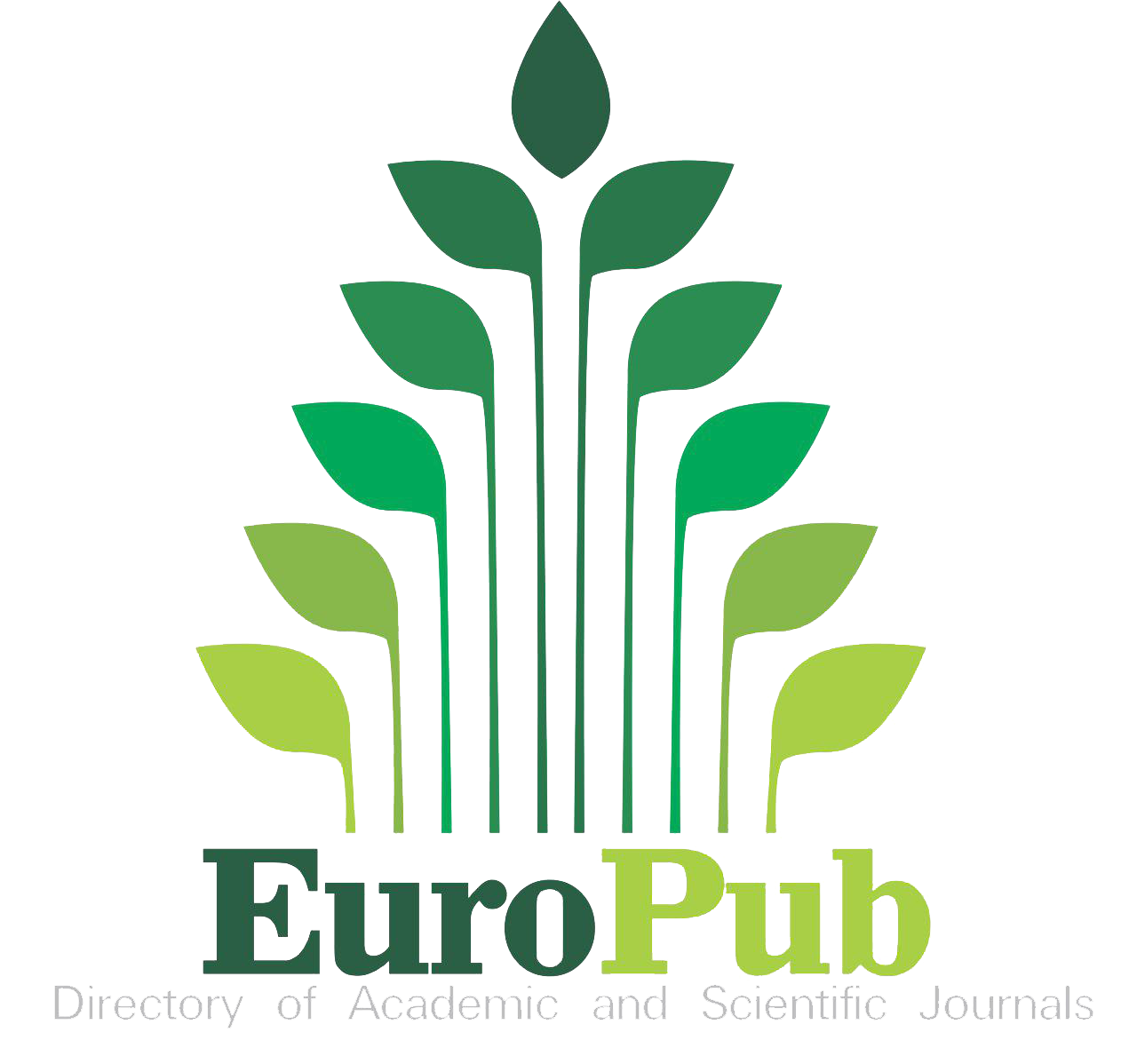FINANCIAL INCLUSION, POPULATION QUALITY LEVEL, POVERTY, AND UNEMPLOYMENT ON ECONOMIC GROWTH
DOI:
https://doi.org/10.23969/trikonomika.v23i1.10840Keywords:
financial inclusion, population, poverty, unemployment, economic growthAbstract
The purpose of this research are to analyse the effect of financial inclusion and population quality level on economic growth with poverty and unemployment as intervening variables. The research method used in this study is a quantitative descriptive analysis approach. The independent variables are financial inclusion, population quality level, poverty, unemployment, and the dependent variable is economic growth. The total data employed is 1020 which was taken from the Central Agency of Statistic (BPS) and the Financial Service Authority (OJK) in year 2016-2021. The data analysis method used is Partial Least Square with Structural Equation Modelling and bootstrapping method. The results showed that financial inclusion does not have an effect on economic growth, poverty and unemployment. Poverty and unemployment cannot mediate the correlation between financial inclusion and level of population quality on economic growth. Unemployment has a positive effect on poverty.A slower economic growth and poverty in Indonesia are still a crucial problem that must be solved, therefore this study gives essential implications to provide data for policymakers such as the OJK that has important role on encouraging financial inclusion and economic growth; as well as BPS in reducing poverty and unemployment; and to enrich literature and theory.
Downloads
References
Abu-Eideh, O. M. 2014. Factors Of Economic Growth In Palestine: An Empirical Analysis During The Period Of (1994-2013). International Journal of Business & Economic Development, 2(2), 70-84.
Acemoglu, D., Johnson, S., & Robinson, J. A. 2009. Reversal of Fortune: Geography and Institutions in the Making of the Modern World Income Distribution. The Quarterly Journal of Economics,, 117(4), 1231-1294.
Adam, F., & Atmanti, H. D. 2021. Analisis Pengaruh Inklusi Keuangan Terhadap Kemiskinan Di 6 Provinsi Di Pulau Jawa. Jurnal Smart, 1(1), 001-008.
Aisen, A., & Veiga, F. 2013. How Does Political Instability Affect Economic Growth? European Journal of Political Economy, 29(C), 151-167.
Bank Indonesia. 2020. Bank Indonesia. Retrieved from Bank Indonesia: https://www.bi.go.id/id/function-utama/stabilitas-sistem-keuangan/keuangan-inlusif/Default.aspx
Boldeanu, F. T., & Constantinescu, L. 2015. The Main Determinants Affecting Economic Growth. Bulletin of the Transilvania Series V: Economic Sciences.
Bostan, I., Toma, C., Aevoae, G., Robu, I.-B., Mardiros, D. N., & Topliceanu, Ș. C. 2023. Effects of Internal and External Factors on Economic Growth in Emerging Economies: Evidence from CEE Countries. Eastern European Economics, 61(1), 66-85. doi: 10.1080/00128775.2022.2109489
Central Bureau of Statistics. 2016-2021. Human Development Index Data. Available at http://www.bps.go.id. Retrieved 28 March 2022.
Central Bureau of Statistics. 2016-2021. Poverty Data. Available at http://www.bps.go.id. Retrieved 28 March 2022.
Central Bureau of Statistics. 2016-2021. Gross Regional Domestic Product Data. Available at http://www.bps.go.id. Retrieved 28 March 2022.
Central Bureau of Statistics. 2016-2021. Open Unemployment Rate Data. Available at http://www.bps.go.id. Retrieved 28 March 2022.
Clarisa, D. 2020. Analisis Pengaruh Inklusi Keuangan Terhadap Pertumbuhan Ekonomi Indonesia. (undergraduate), Universitas Andalas., Padang.
Cooray, A. V. 2009. Government Expenditure, Governance And Economic Growth. Comparative Economic Studies, 51(3), 401-418.
Darman, D. 2013. Pengaruh Pertumbuhan Ekonomi terhadap Tingkat Pengangguran: Analisis Hukum Okun. The Winners, 14(1), 1-12.
Donou-Adonsou, F., & Sylwester, K. 2016. Financial Development And Poverty Reduction In Developing Countries: New Evidence From Banks And Microfinance Institutions. Review of Development Finance, 6(1), 82-90. doi: https://doi.org/10.1016/j.rdf.2016.06.002
Erlando, A., Riyanto, F. D., & Masakazu, S. 2020. Financial Inclusion, Economic Growth, And Poverty Alleviation: Evidence From Eastern Indonesia. Heliyon, 6(10), e05235. doi: https://doi.org/10.1016/j.heliyon.2020.e05235
Farathika Putri, U. 2020. Pengaruh Indeks Pembangunan Manusia (IPM), Kemiskinan, Pengangguran Terhadap Pertumbuhan Ekonomi di Provinsi Aceh. Jurnal Samudra Ekonomika, 4(2). doi: 10.33059/jse.v4i2.2303
Financial Services Authority. 2013. National Survey of Financial Literacy and Inclusion 2013. Available at: http://www. ojk.go.id/. Retrieved 28 March 2022.
Financial Services Authority. 2016. Revisited 2017 National Survey on Financial Literacy and Inclusion. Available at: http://www. ojk.go.id/. Retrieved 28 March 2022.
Financial Services Authority. 2019. National Survey of Financial Literacy and Inclusion 2019. Available at: http://www. ojk.go.id/. Retrieved 28 March 2022.
Ghosh, S. 2011. Does Financial Outreach Engender Economic Growth? Evidence from Indian states. Journal of Indian Business Research, 3(2), 74-99. doi: 10.1108/17554191111132206
Grabova, P. 2014. Corruption Impact On Economic Growth: An Empirical Analysis. Journal of Economic Development, Management, IT, Finance, and Marketing, 6(2), 57.
Hidayat, E. W., Rosyadi, & Bariyah, N. 2020. Human Development Index, Unemployment and Poverty Rate in Kalimantan Barat. Seminar Akademik Tahunan Ilmu Ekonomi dan Studi Pembangunan, Pontianak.
Hidayatinnisa, N., Fauziah, Trivena, S. M., & Aini, Y. N. 2021. The Effect of Financial Literacy and Financial Inclusion on Economic Growth in Indonesia. JBMP: Jurnal Bisnis, Manajemen dan Perbankan, 7(2), 339-359.
Hjazeen, H., Seraj, M., & Ozdeser, H. 2021. The Nexus Between The Economic Growth And Unemployment in Jordan. Future Business Journal, 7(1), 42. doi: 10.1186/s43093-021-00088-3
Ilahi, Y. F., Abidin, M., Ekowati, V. M., & Lesmana, C. I. 2023. The Role of Micro, Small and Medium Enterprises (MSMEs) in Alleviating Poverty Caused by Unemployment. Jurnal Ekonomi Pembangunan, 21(2), 98-114.
Ipmawan, H., Kristanto, D., Hendrawan, K., & Kuncoro, A. W. 2022. The Influence of The Human Development Index, Unemployment Rate, and Illiteracy Population on Poverty Level in Indonesia for the Period 2015-2020. MUHARRIK: Jurnal Dakwah dan Sosial, 5(1), 89-103.
Irawan, E. 2022. The Effect Of Unemployment, Economic Growth And Human Development Index On Poverty Levels In Sumbawa Regency in 2012-2021. International Journal of Economics, Business and Accounting Research (IJEBAR), 6(2), 1286-1291.
Karaalp-Orhan, H. S. 2020. Regional Disparities in Turkey: A Socio-Economic Perspective. European Journal of Sustainable Development, 9(3), 103. doi: 10.14207/ejsd.2020.v9n3p103
Kendall, J., Mylenko, N., & Ponce, A. 2016. Measuring Financial Access Around the World. World Bank Policy Research Working Paper, No. 5253.
Khaironi, L. M. 2021. The Effect of Unemployment and Inflation on Economic Growth in Aceh Province. ProBisnis : Jurnal Manajemen, 12(2), 16-22.
Khan, H. R. 2011. Financial Inclusion and Financial Stability: Are They Two Sides of the Same Coin? . Indian Bankers Association and Indian Overseas Bank, Chennai., BANCON 2011.
Khan, N., Zafar, M., Okunlola, A. F., Zoltan, Z., & Robert, M. 2022. Effects of Financial Inclusion on Economic Growth, Poverty, Sustainability, and Financial Efficiency: Evidence from the G20 Countries. Sustainability, 14(19), 1-19.
Kim, D.-H., Chen, T.-C., & Lin, S.-C. 2019. Finance And Unemployment: New Panel Evidence. Journal of Economic Policy Reform, 22(4), 307-324.
Kusuma, A. A. N. J., & Indrajaya, I. G. B. 2020. Analisis Pengaruh Inklusi Keuangan Terhadap Tingkat Kemiskinan Dan Ketimpangan Pendapatan Masyarakat Di Kabupaten/Kota Provinsi Bali. Jurnal Ekonomi Pembangunan Universitas Udayana, 9(5), 993 - 1022.
Kusumawati, A., Primandhana, W. P., & Wahed, M. 2021. Analisis Pengaruh Tingkat Kemiskinan, Tingkat Pengangguran Terbuka, Dan Indeks Pembangunan Manusia terhadap Pertumbuhan Ekonomi Provinsi Jawa Timur. Eksis: Jurnal Ilmiah Ekonomi dan Bisnis, 12(2), 118-122.
Mahroji, D., & Nurkhasanah, I. 2019. Pengaruh Indeks Pembangunan Manusia Terhadap Tingkat Pengangguran di Provinsi Banten. Jurnal Ekonomi-Qu, 9(1).
Malešević Perović, L., Simic, V., & Muštra, V. 2014. Investigating The Influence Of Economic And Socio-Political Openness On Growth. International Journal of Economic Sciences and Applied Research, 6(3), 35-59.
Martinez, M. V. 2011. The Political Economy Of Increased Financial Access. Georgetown University.
Mehry, E.-B., Ashraf, S., & Marwa, E. 2021. The Impact of Financial Inclusion on Unemployment Rate in Developing Countries. International Journal of Economics and Financial Issues, 11(1), 79-93.
Mostafa, S., Ashraf, S. E., & Marwa, E. 2023. The Impact of Financial Inclusion on Economic Development. International Journal of Economics and Financial Issues, 13(2), 93-101. doi: 10.32479/ijefi.14107
Muqorrobin, M., & Soejoto, A. 2017. Pengaruh Indeks Pembangunan Manusia (IPM) Terhadap Pertumbuhan Ekonomi Provinsi Jawa Timur. Jurnal Pendidikan Ekonomi (JUPE), 5(3), 1-6.
Nugroho, P. A. 2015. Pengaruh PDRB, Tingkat Pendidikan, Dan Pengangguran Terhadap Kemiskinan Di Kota Yogyakarta. Universitas Negeri Yogyakarta, Yogyakarta.
Pangeran, & Subambang. 2021. Indeks Inklusi Keuangan Dan Pertumbuhan Inklusi Di Indonesia: Analisis Kausalitas Granger. Jurnal Ekonomi Hukum & Humaniora, 3(3), 1-16.
Pramudjasi, R., Juliansyah, & Lestari, D. 2019. Pengaruh Jumlah Penduduk Dan Pendidikan Serta Upah Terhadap Pengangguran Di Kabupaten Paser. Kinerja, 16(1), 69-77.
Pratama, A. G. K., & Darsana, I. B. 2019. Pengaruh Kemiskinan Dan Investasi Terhadap Pertumbuhan Ekonomi Dan Kesejahteraan Masyarakat. E-Jurnal Ekonomi Pembangunan Universitas Udayana, 8(6), 1300-1330.
Purba, J. H. V. 2022. Analysis Driving Factors of Economic Growth During Covid-19 Pandemic: Indonesian Experiences. Jurnal Ilmiah Manajemen Kesatuan, 10(1), 73-86.
Putra, I. K. A. A., & Arka, S. 2018. Analisis Pengaruh Tingkat Pengangguran Terbuka, Kesempatan Kerja, Dan Tingkat Pendidikan Terhadap Tingkat Kemiskinan Pada Kabupaten/Kota Di Provinsi Bali. E-Jurnal EP Unud, 7(3), 416-444.
Rahman, M. M., & Alam, K. 2021. Exploring The Driving Factors Of Economic Growth In The World's Largest Economies. Heliyon, 7(5), e07109. doi: https://doi.org/10.1016/j.heliyon.2021.e07109
Santosa, D. 2012. Analisis Keuangan Publik Jawa Timur 2011:Mengoptimalkan Pengelolaan Keuangan Daerah untuk Pertumbuhan yang Inklusif (pp. 1-168). Jakarta: Kantor Bank Dunia Jakarta.
Todaro, M. M. 2006. Pembangunan Ekonomi di Dunia Ketiga. Jakarta: Erlangga.
Upre, P. 2015. Factors Affecting Economic Growth in Developing Countries. Major Themes in Economics, 17(1), 37-54.
Utami, F. P. 2020. Pengaruh Indeks Pembangunan Manusia (IPM), Kemiskinan, Pengangguran Terhadap Pertumbuhan Ekonomi di Provinsi Aceh. Jurnal Samudra Ekonomika, 4(2). doi: 10.33059/jse.v4i2.2303
Yolanda, C., Lubis, I., Ruslan, D., Hardianti, A., & Mukarramah. 2020. Analysis of the Effect of Investment and Unemployment on Economic Growth and Poverty in North Sumatra Province. International Journal of Research and Review, 7(8), 71-80.
Zaman, K., Shah, I. A., & Ahmad, M. 2012. Understanding the Relationship between Economic Growth, Employment, Income Inequality and Poverty in Pakistan. Journal of Social and Economic Development, 14(1), 1-24.
Zia, I. Z., & Prasetyo, P. E. 2018. Analysis of Financial Inclusion Toward Poverty and Income Inequality. Jurnal Ekonomi Pembangunan, 19(1), 114-125.











